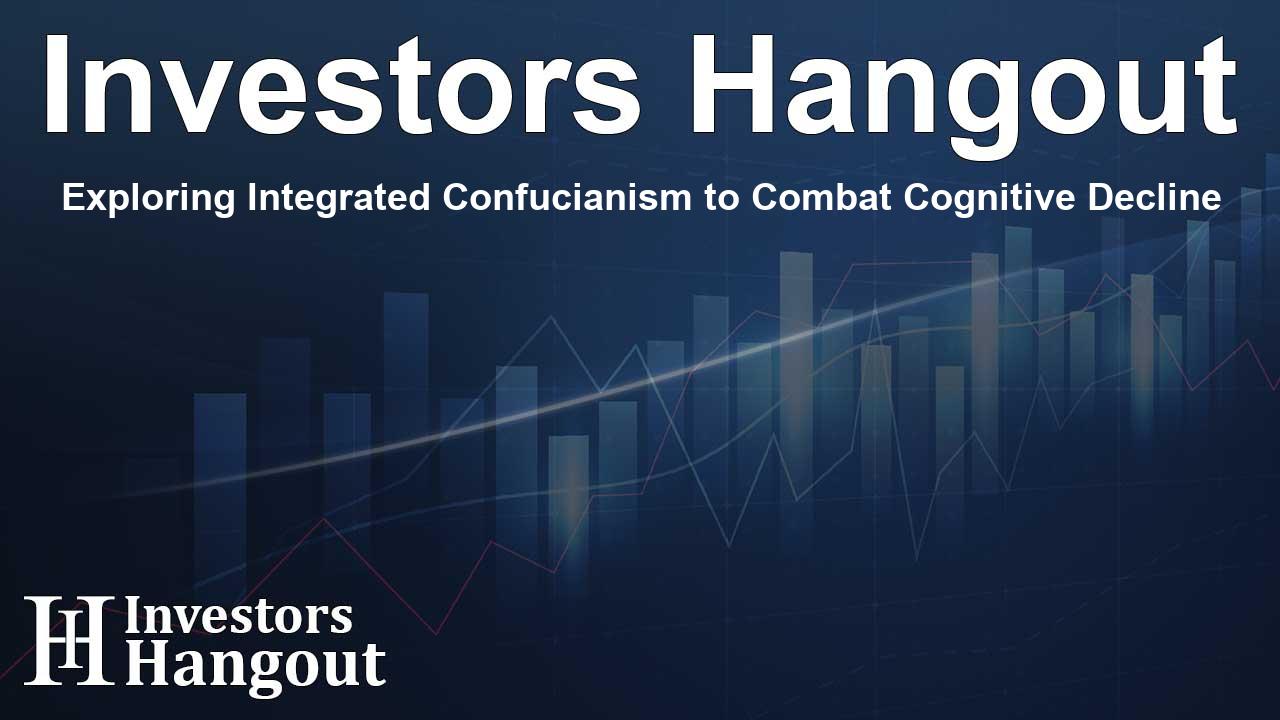Exploring Integrated Confucianism to Combat Cognitive Decline

Understanding Brain Rot and Its Implications
In today's digital age, we often encounter a phenomenon termed "Brain Rot," which refers to the cognitive stagnation stemming from digital overconsumption. This term was recognized as Oxford's Word of the Year 2024, highlighting the pressing concern of intellectual shallowness that many individuals experience, especially amidst the rapid advancements in artificial intelligence and big data management. A revelation from a significant figure in technology, Tim Cook, emphasized during his speech at MIT, the necessity of infusing technology with core values lest it become meaningless.
The First Integrated Confucianism Forum
Amidst these challenges, the First Integrated Confucianism Forum took place recently, aiming to tackle humanity's spiritual crises through Eastern wisdom traditions. The venue was an inviting space that gathered intellectual minds and cultural leaders who engaged in discussions centered on the theme of "The Transformation of Huaxia Spirit and the Formation of Integrated Confucianism." This initiative aimed to showcase how Confucian ideals could offer positive guidance for personal improvement and societal advancement during uncertain times.
Insights from Author Xue Mo
At the forefront of the discussions was Author Xue Mo, who articulated the importance of Confucian self-cultivation known as xiu xing. He struck a chord with his assertion that developing this inner peace is crucial to navigating the chaos of modern life. He advised, "Focus on what truly matters rather than seeking external validation; mastery over one’s mind is paramount against societal distractions."
Theoretical Foundations by Professor Zheng Changzhong
Further enriching the dialogue, Professor Zheng Changzhong from Fudan University presented insights into the theoretical underpinnings of Integrated Confucianism. He asserted that genuine innovation within Confucianism requires a thoughtful blending of traditional Chinese cultural elements with contemporary societal needs. The professor remarked that by integrating ideas from Buddhism and Daoism, alongside modern scientific advancements, Confucianism could effectively engage with the realities and challenges of today's world, thereby enhancing both its theoretical and practical relevance.
The Relevance of Confucian Concepts Today
Professor Zheng emphasized the enduring significance of the Confucian ideals of "inner sage and outer king." He elaborated that nurturing one's inner self leads to greater self-discipline and ethical behavior, which can empower individuals to take on an outer role in their communities, enhancing social cohesion amidst fragmentation. This duality provides a framework for individuals to achieve personal growth while contributing positively to society.
Cultural Soil as a Metaphor
Mr. Xue Mo drew a creative analogy, portraying Integrated Confucianism as analogous to enriching cultural soil. He articulated that just as fertile soil is vital for plant life, cultivating a robust cultural foundation is crucial for societal transformation. By fostering a synthesis of Confucian, Taoist, and Buddhist principles, society may find viable pathways to navigate the complexities of global challenges today.
Chinese civilization's rich legacy echoes through centuries of nurturing a resilient spirit that exemplifies both "Heavenly motion" (tian xing jian) and the inclusive virtue of "Earthly receptivity" (di shi kun). In an era fraught with conflicts, these guiding principles serve as a beacon of hope and wisdom for humanity, urging a collective remembrance of our shared values.
Rediscovering Our Inner Strength
Ultimately, the journey towards curing what is termed "Brain Rot" may well begin with the profound act of rediscovering our inner strength. As encapsulated by the insights shared at the forum, embracing the wisdom of Confucianism could pave the way for a richer and more meaningful existence, transforming individual and collective approaches to modern challenges.
Frequently Asked Questions
What is "Brain Rot"?
"Brain Rot" refers to cognitive stagnation caused by excessive digital consumption, leading to a decline in intellectual engagement.
What was the aim of the First Integrated Confucianism Forum?
The forum aimed to address humanity's spiritual crises and explore the relevance of Confucian principles in modern society.
Who is Xue Mo and what did he propose?
Xue Mo is an author who advocates for self-cultivation as a means to achieve inner peace amidst external chaos.
Why is Integrated Confucianism significant today?
Integrated Confucianism acts as a bridge between traditional values and contemporary cultural expressions to tackle modern challenges effectively.
How can Confucian principles help in personal growth?
Confucian principles encourage self-discipline and the assumption of social responsibilities, promoting personal integrity and community cohesion.
About The Author
Contact Thomas Cooper privately here. Or send an email with ATTN: Thomas Cooper as the subject to contact@investorshangout.com.
About Investors Hangout
Investors Hangout is a leading online stock forum for financial discussion and learning, offering a wide range of free tools and resources. It draws in traders of all levels, who exchange market knowledge, investigate trading tactics, and keep an eye on industry developments in real time. Featuring financial articles, stock message boards, quotes, charts, company profiles, and live news updates. Through cooperative learning and a wealth of informational resources, it helps users from novices creating their first portfolios to experts honing their techniques. Join Investors Hangout today: https://investorshangout.com/
The content of this article is based on factual, publicly available information and does not represent legal, financial, or investment advice. Investors Hangout does not offer financial advice, and the author is not a licensed financial advisor. Consult a qualified advisor before making any financial or investment decisions based on this article. This article should not be considered advice to purchase, sell, or hold any securities or other investments. If any of the material provided here is inaccurate, please contact us for corrections.
